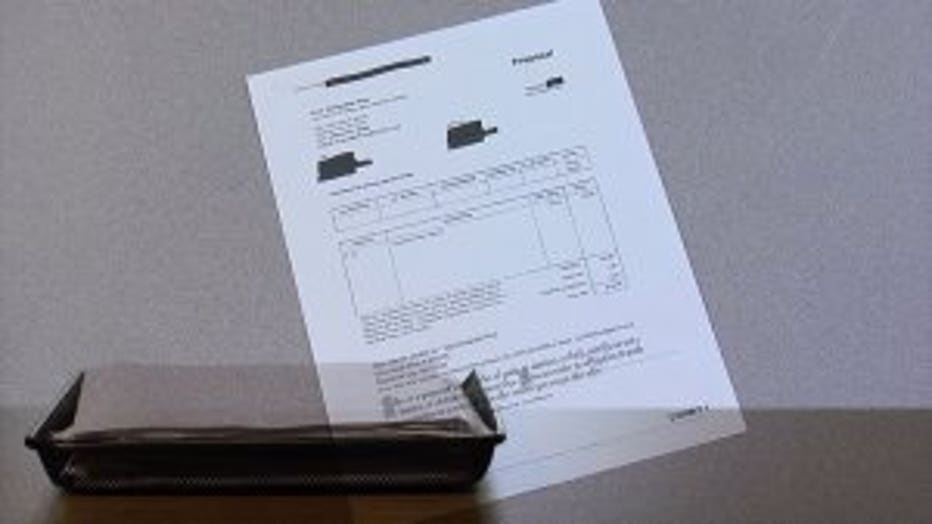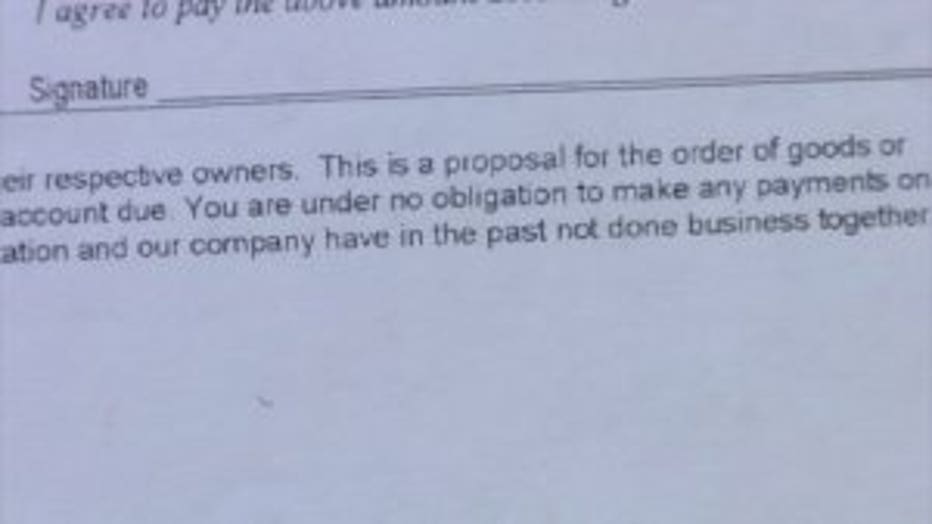Read the fine print: Business owners lose thousands in phony invoice scam
Read the fine print: Business owners lose thousands in phony invoice scam
Read the fine print: Business owners lose thousands in phony invoice scam
OKLAHOMA CITY — Not every bill you receive in the mail is legitimate. Unfortunately, many business owners have learned that lesson the hard way. However, there are easy ways to protect yourself.

Phony invoice sent to several businesses.
Advertising in the Yellow Pages or using a computer service company like Comp Pro are typical expenses for many companies. So when an invoice from a computer service showed up in the mail to several businesses the assumption was that it was legitimate.
"They thought they owed these different prices. One was for Yellow Book, the other was Comp Pro and it’s for services ranging from $75 to $400," explained U.S. Postal Inspector Ryan Brakhage.
In truth, they didn't owe a penny. Con artists literally sent out thousands of phony invoices to companies banking on the assumption that it wouldn't be questioned.
"The billing department gets that and they just pay it. They just think, it’s not a large amount of money — it’s not $1000 – $1500 dollars. So they just go ahead and pay it because they get multiple bills," Brakhage said.
Postal inspectors say the scheme worked.
A large number of businesses lost $752,000.
"Sometimes there’s fine print on the bottom or on the back of the page. You know, read that very carefully," said Brakhage.

Fine print on phony invoice explains that the business is under no obligation to pay the bill.
In this case, "you are under no obligation to make any payment" was on the invoice.
The best way for business owners to stop a scheme like this is to keep track of the bills.
"Talk to your shipping department, your ordering department, you know? Just because you get a bill in the mail doesn’t mean you ordered it," Brakhage advised.
Authorities issued hundreds of cease and desist orders in this case requiring the issuer of the invoices to stop sending the phony documents.

